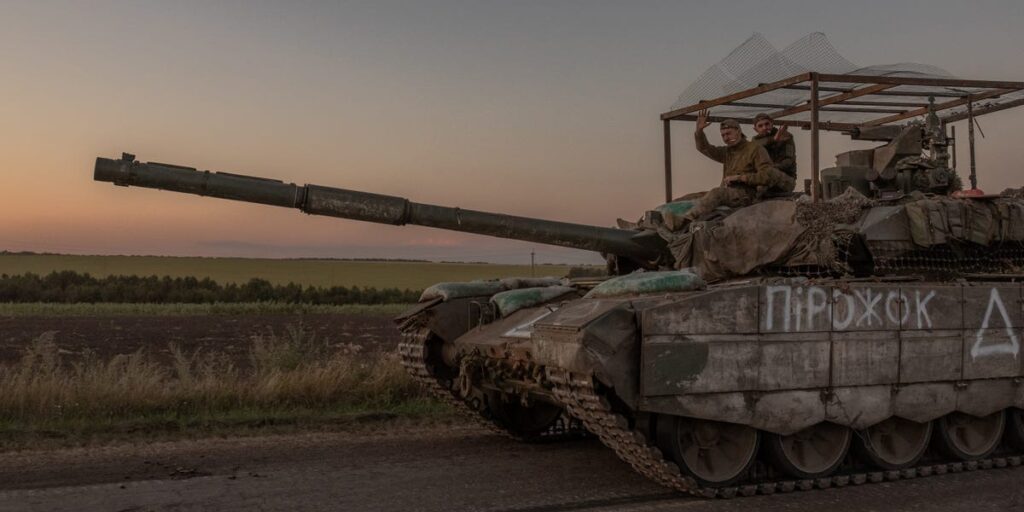This assessment is based on the delays in Western aid, particularly the slowness of the US Congress approving military aid, Daniel S. Hamilton, an adjunct senior fellow at the Brookings Institution and a senior fellow at the Johns Hopkins University SAIS Foreign Policy Research Institute, told Business Insider.
But last week, Ukraine launched a surprise attack on Russia’s Kursk region, catching Russian forces off guard, forcing Russian President Vladimir Putin to withdraw some troops from Ukraine.
Months of relentless Russian military attacks on Ukrainian territory appeared to be forcing Ukraine into a slow and brutal withdrawal in eastern Ukraine.
But the new offensive on Kursk will serve as a timely reminder to international allies that the outcome of war is not a foregone conclusion.
This is especially important ahead of the U.S. elections, which Ukraine is feeling keenly, Hamilton said.
There have been serious threats to cut military aid to Ukraine if Trump wins, something the former president said in June would be “immediately resolved.”
Kyiv is therefore likely trying to put itself in the best possible position if it has to enter into negotiations with Russia.
“Politically speaking, the aim of the operation is to increase leverage ahead of any possible negotiations,” Jack Watling, senior research fellow for land warfare at the Royal Institute of Joint Military Studies, wrote in the Guardian.
“The Ukrainian government, if it has to participate in this process, wants to ensure that Russia gets what it wants in exchange for concessions,” he added. “Thus, Ukrainian forces would need to occupy and hold a significant portion of Russian territory for the duration of any potential negotiations.”
Ukrainian military vehicles parked near the border with Russia during the Kursk invasion in August 2024. Libkos via Getty Images
Hamilton said Ukraine’s new strategy demonstrates its ability to conduct complex operations involving large numbers of military assets and strengthens its position on the battlefield by demonstrating its ability to shape the conflict aggressively.
But it remains to be seen how long such activities can continue.
Hamilton added that maintaining momentum depends on continuing to replenish forces, which remains uncertain.
Still, the invasion may have signaled a shift in Western policy.
While Western nations have been reluctant to accept Ukraine attacking Russia, many have signaled their support for Ukraine’s actions in Kursk, including Germany, which has been reluctant to risk provoking Putin.
“Ukraine has the right to self-defense guaranteed by international law,” the German foreign ministry said in a statement to Politico earlier this month. “This right is not limited to its own territory.”
“It is too early to assess the consequences and operational significance of Russian aggression in Ukraine,” the Institute for the Study of War said in its assessment of the conflict on Saturday.
But he added that given the scale of the Russia-Ukraine war, the Kursk advance and Russia’s operations in eastern Ukraine likely were not “decisive military operations” that would have won the war.



